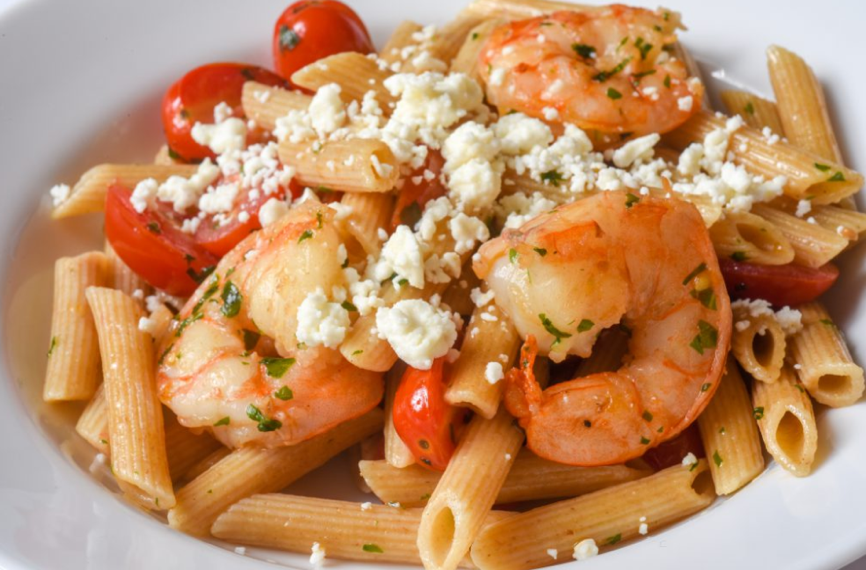Why Eat The Med Way?!
go.ncsu.edu/readext?939031
en Español / em Português
El inglés es el idioma de control de esta página. En la medida en que haya algún conflicto entre la traducción al inglés y la traducción, el inglés prevalece.
Al hacer clic en el enlace de traducción se activa un servicio de traducción gratuito para convertir la página al español. Al igual que con cualquier traducción por Internet, la conversión no es sensible al contexto y puede que no traduzca el texto en su significado original. NC State Extension no garantiza la exactitud del texto traducido. Por favor, tenga en cuenta que algunas aplicaciones y/o servicios pueden no funcionar como se espera cuando se traducen.
Português
Inglês é o idioma de controle desta página. Na medida que haja algum conflito entre o texto original em Inglês e a tradução, o Inglês prevalece.
Ao clicar no link de tradução, um serviço gratuito de tradução será ativado para converter a página para o Português. Como em qualquer tradução pela internet, a conversão não é sensivel ao contexto e pode não ocorrer a tradução para o significado orginal. O serviço de Extensão da Carolina do Norte (NC State Extension) não garante a exatidão do texto traduzido. Por favor, observe que algumas funções ou serviços podem não funcionar como esperado após a tradução.
English
English is the controlling language of this page. To the extent there is any conflict between the English text and the translation, English controls.
Clicking on the translation link activates a free translation service to convert the page to Spanish. As with any Internet translation, the conversion is not context-sensitive and may not translate the text to its original meaning. NC State Extension does not guarantee the accuracy of the translated text. Please note that some applications and/or services may not function as expected when translated.
Collapse ▲The Mediterranean eating pattern has not only developed a following but it has the research to back it up. Sticking to the lifestyle of the Med Way has proven to prevent chronic diseases and has resulted in a decrease in some medication use. Eating the Med way has proven to be more effective than sticking to a low-fat diet to cause weight loss. The Med way can manage blood pressure and decrease the risk of the development of type 2

diabetes. A study has shown that the Med way reduced the risk of type 2 diabetes by 52%. The Med way also has benefits outside of things commonly seen caused by a person’s diet, like lowering the risk of developing Alzheimer’s by protecting small blood vessels in the brain. Not only does the Med way have many health benefits, but it also provides recipes that keep meals delicious and enjoyable.
There are seven easy steps to eating the Med way. When eating protein, it is important to limit red meat and choose white meat instead like chicken or turkey. It is also important to add fatty fish, like salmon, to your diet two to three times per week. You can also get protein from plants like seeds, beans, and nuts. The Med way also focuses on small details like swapping out your fats, for example, replacing things like butter with olive oil. The Med way consists of at least three servings of vegetables a day and although a variety of colors is encouraged, eating more dark leafy vegetables like kale is better. It is also important to consume at least two cups of fruits per day, berries being the best choice. The best snack to choose to eat on the Mediterranean diet is nuts and seeds. As a healthier route of eating grain-based foods, choose whole grains. Lastly, limit your sugar intake.
small details like swapping out your fats, for example, replacing things like butter with olive oil. The Med way consists of at least three servings of vegetables a day and although a variety of colors is encouraged, eating more dark leafy vegetables like kale is better. It is also important to consume at least two cups of fruits per day, berries being the best choice. The best snack to choose to eat on the Mediterranean diet is nuts and seeds. As a healthier route of eating grain-based foods, choose whole grains. Lastly, limit your sugar intake.
Mindful eating is an important practice to consider when it comes to the Mediterranean eating pattern. Mindful eating is the practice of being in tune with your body and mind when eating to enjoy your food but to also get the correct portion size. Mindful eating can help with under-eating and overeating. In the era of technology and busy lifestyles, it is easy to lose sight of your hunger cues. Many times people eat while distracted, for example, while being on the phone, while working, or in a rush. This can lead to unbalanced meals which can affect a person’s mental and physical well-being. Mindfulness eating steers away from sticking to a strict diet that does not access a person’s personal needs and food preferences, and the Med way makes that possible.
Look out for more info on our Med Instead of Meds Classes that are coming in the Fall.
Sources and References
Mindful eating: The key to eating what you want and fully enjoying it.
EatingWell. Editors, E. (2021, December 7).
Med instead of meds
Med Instead of Meds. (2016, September 9).
Pexels (n.d.).
Written by Ryan Ranson, Extension Intern.
Approved and Edited by Vincent Webb, FCS Agent




